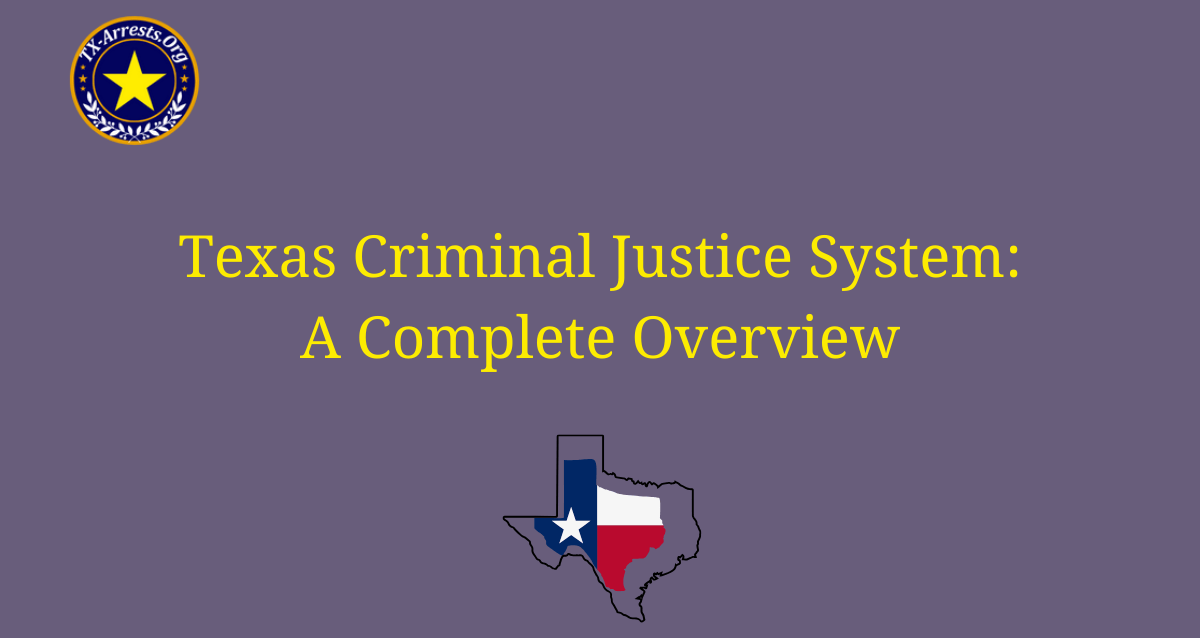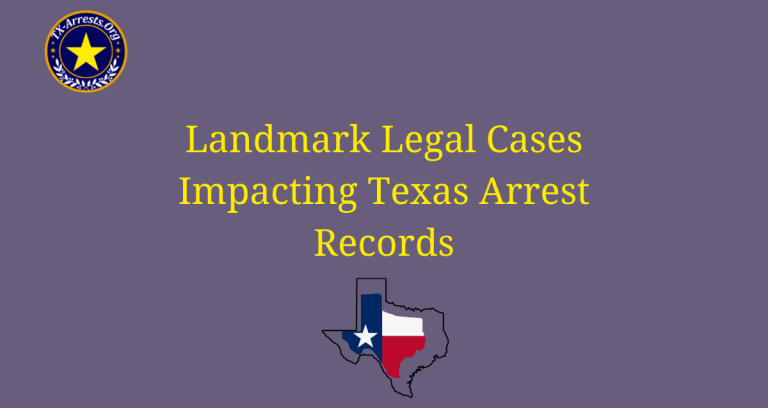Texas Criminal Justice System: A Complete Overview

The Texas Criminal Justice System is a comprehensive framework that governs the administration of justice in the state of Texas. It encompasses various agencies, institutions, and processes that work together to maintain law and order and ensure the safety and well-being of its residents.
At the heart of the Texas Criminal Justice System is a commitment to fairness, transparency, and accountability. From the moment a crime is reported to the final resolution of a case, every step is carefully regulated and monitored to uphold the principles of justice. Whether it’s the police officers who investigate crimes, the prosecutors who present cases in court, or the judges who make impartial decisions, each component plays a crucial role in upholding the rule of law.
Texas Criminal Justice: Agencies & Institutions
The Texas Criminal Justice System is made up of various agencies and institutions that work together to maintain law and order in the state. These include the Texas Department of Public Safety (DPS), the Texas Department of Criminal Justice (TDCJ), and the Texas Rangers.
The DPS is responsible for enforcing state laws, conducting criminal investigations, and providing public safety services. They oversee the Texas Highway Patrol, the Texas Rangers, and the Texas Division of Emergency Management.
The TDCJ is responsible for the management and supervision of offenders within the state’s correctional facilities. They operate prisons, state jails, and substance abuse treatment facilities. The TDCJ also provides rehabilitation programs and reentry services to help offenders reintegrate into society.
The Processes of the Texas Criminal Justice System
The Texas Criminal Justice System is governed by a set of processes that ensure the fair and efficient administration of justice. These processes include the investigation and arrest of alleged offenders, the presentation of cases in court, and the resolution of those cases.
When a crime is reported, law enforcement agencies conduct investigations to gather evidence and identify suspects. If there is enough evidence, an arrest is made, and the case proceeds to the court system.
In court, prosecutors present the evidence against the accused and argue for their conviction. Defense attorneys, on the other hand, advocate for the rights of the accused and challenge the evidence presented. Judges play a crucial role in ensuring that the proceedings are fair and that the rights of both the accused and the victims are protected.
The Principles of Fairness, Transparency, and Accountability
The Texas Criminal Justice System is built on principles of fairness, transparency, and accountability. These principles ensure that every individual involved in the system is treated justly and that the process is open to public scrutiny.
Fairness is upheld through the presumption of innocence, the right to legal representation, and the requirement for evidence beyond a reasonable doubt. Transparency is achieved through open court proceedings, public access to records, and the availability of information about the system’s operations.
Accountability is maintained through the oversight of various entities, such as the Texas Commission on Law Enforcement and the State Commission on Judicial Conduct. These entities monitor the conduct of law enforcement officers, prosecutors, and judges, ensuring that they adhere to ethical standards and uphold the rule of law.
The Role of Law Enforcement, Prosecutors, and Judges
Law enforcement officers play a vital role in the Texas Criminal Justice System. They are responsible for preventing and investigating crimes, apprehending suspects, and ensuring public safety. They work alongside prosecutors to gather evidence and build strong cases against offenders.
Prosecutors play a crucial role in presenting cases in court and advocating for justice. They review the evidence, interview witnesses, and make decisions about charging offenders. Their goal is to ensure that the guilty are held accountable and that the innocent are protected.
Judges have the important task of making impartial decisions based on the law and the evidence presented. They preside over court proceedings, ensure that the rules of procedure are followed, and hand down judgments. Their role is to provide a fair and unbiased forum for the resolution of cases.
FAQs
What is the Texas Criminal Justice System?
The Texas Criminal Justice System refers to the collection of government agencies and institutions responsible for the enforcement of criminal laws and the administration of justice in the state of Texas. It includes various components such as law enforcement agencies, courts, and correctional facilities.
How does the Texas Criminal Justice System work?
The Texas Criminal Justice System operates through a series of steps, beginning with the investigation and arrest of individuals suspected of committing crimes. The case then progresses through the court system, where the accused is afforded due process rights, including the right to legal representation and a fair trial. If found guilty, the offender may be sentenced to incarceration or other forms of punishment.
What are the major law enforcement agencies in the Texas Criminal Justice System?
The Texas Criminal Justice System is supported by various law enforcement agencies, including the Texas Department of Public Safety, Texas Rangers, and local police departments. These agencies are responsible for maintaining public safety, preventing and investigating crimes, and apprehending suspects.
What types of courts are involved in the Texas Criminal Justice System?
The Texas Criminal Justice System comprises different types of courts, such as municipal courts, county courts, district courts, and appellate courts. Municipal courts handle minor offenses, while county and district courts handle more serious criminal cases. Appellate courts review decisions made by lower courts.
What is the role of correctional facilities in the Texas Criminal Justice System?
Correctional facilities, including prisons and jails, play a crucial role in the Texas Criminal Justice System. These facilities are responsible for housing and rehabilitating individuals who have been convicted of crimes. They aim to protect society, deter criminal behavior, and provide opportunities for rehabilitation and reintegration.
Are there any alternatives to incarceration in the Texas Criminal Justice System?
Yes, the Texas Criminal Justice System recognizes alternatives to incarceration for certain offenders. These alternatives can include probation, community service, drug rehabilitation programs, and diversion programs. The goal is to address the underlying issues that contribute to criminal behavior and reduce the likelihood of reoffending.






